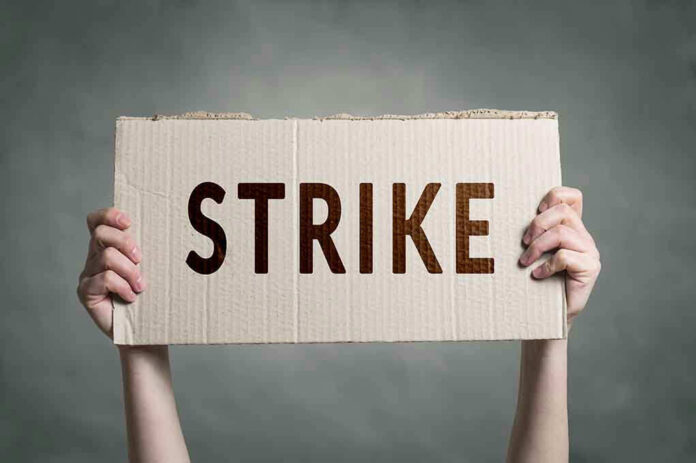
A new wave of labor unrest threatens to disrupt Starbucks’ holiday sales, as unionized baristas go on strike to demand fair contracts.
Story Highlights
- Thousands of Starbucks baristas strike on Red Cup Day for better contracts.
- The strike coincides with Starbucks’ major holiday sales event.
- Union demands include improved pay, staffing, and resolution of labor practice charges.
- Starbucks faces reputational and financial risks as negotiations stall.
Union Strike on Red Cup Day
On November 13, 2025, thousands of Starbucks unionized baristas initiated an open-ended strike during the company’s annual Red Cup Day. This action, known as the “Red Cup Rebellion,” was organized by Starbucks Workers United to demand a fair contract, better pay, improved staffing, and the resolution of numerous unfair labor practice charges. The strike affects dozens of stores nationwide, with participation from up to 12,000 workers.
The strategic timing of the strike, coinciding with Starbucks’ major holiday sales event, aims to pressure the company into meaningful contract negotiations. This move highlights ongoing tensions between the corporation and its workforce, as past attempts to reach an agreement have stalled. The strike represents a significant escalation in the labor dispute, leveraging a high-profile sales event for maximum impact.
Background of the Labor Dispute
Starbucks Workers United began organizing in 2021, starting with the first unionized store in Buffalo, NY. Since then, unionization has grown to over 600 stores, representing more than 12,000 baristas. Persistent disputes over pay, staffing, and working conditions have led to over 1,000 unfair labor practice charges against Starbucks, including allegations of union busting and retaliatory firings. Previous national strikes have occurred, such as those in December 2024 and May 2025 over dress code issues.
Contract negotiations, which began in April 2024, have been fraught with difficulties. Starbucks is accused of stonewalling and refusing to address core union demands, leading to a 92% strike authorization vote by union members in November 2025. As a result, the union has mobilized significant worker and public support, while Starbucks faces reputational and financial risks.
Impact and Future Implications
The strike’s timing during Starbucks’ peak holiday sales period amplifies its potential impact, threatening to disrupt holiday sales and potentially leading to revenue losses. This event could set a precedent for labor activism in the retail sector, pressuring Starbucks to settle contracts and possibly influencing similar actions in other retail chains. The broader implications for corporate labor relations and union strategies are significant, as the outcome may shape the future of labor activism in the industry.
With contract negotiations stalled and over 700 unresolved unfair labor practice charges, the strike underscores the ongoing adversarial relationship between Starbucks and its workforce. The company’s response and the union’s resolve will likely shape labor relations at Starbucks and potentially across the retail sector.












